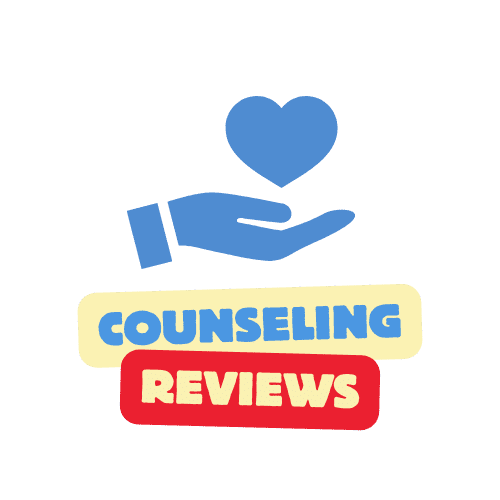Most of us enter an intimate relationship with hope, love, and excitement for the future. When things are going well within our relationship, it feels as though it is “us” against the world. When things become difficult, relationships can feel more lonely and isolating than if we were single.
Since almost half of all marriages have ended in divorce since the 1980s, this means current couples today most likely lack the role model and skills to create and maintain a healthy and viable relationship – as many have come from broken relationships themselves.
Schools do not teach us how to communicate with our loved ones, or how to mend challenges. Often, we do not learn these skills until our relationship is struggling and are looking for support from a marriage counselor or couple’s therapist.
Couples counseling has been shown to be successful in teaching couples how to communicate better, how to understand the other’s perspective, and how to create solutions to problems. Couples counseling does not include blaming, or shaming, but rather looks at the couple in an objective manner with the pure intention of serving both parties’ needs.
In this article, we will discuss what to look for in a couple’s therapist near you, how to locate one, and how couples’ therapy and marriage counseling together can work for you.
What to look for in a couple’s therapist near you?
When seeking a couple’s therapist, it is important to find a therapist who specializes in working with couples. Your intimate relationship is one of the most significant relationships you will have, and when a couple is struggling, the relationship can be very vulnerable to outside influence.
A few questions to ask include:
-
How many couples have they worked with?
-
What is their method of working with couples?
-
What is their success rate?
-
Do they offer counseling to one partner if the other refuses to attend?
-
What is their availability?
If you find a therapist who is a generalist and works with kids, teens, individuals, and couples, consider the benefits and drawbacks of not working with couples therapists or a specialist. While those therapists may be skillful working with various populations, you want a seasoned couple’s therapist with expertise.
Whomever you choose, they should feel like a good match, and if they are not, seek another therapist as soon as possible. Ultimately, you are the consumer of their services and you have the right to determine whom you want to work with.
The Gottman Method has been recognized as a highly successful research-based methodology for working with couples. The Gottman Institute provides training and certification to therapists and counselors desiring expertise in relationship counseling.
There are three levels of certification, with level three being the highest level of achievement. You can find Gottman-certified therapists here
How to Find a Couples Therapist
-
American Association for Marriage and Family Therapy (AAMFT): The AAMFT is the professional organization for clinicians who specialize in couples work. Use the therapist locator tool on their website to initiate your search for a qualified therapist.
-
Check Your Insurance Company’s List: Refer to your insurance company’s list of preferred providers. This can help you find therapists who are covered by your insurance plan, reducing your out-of-pocket expenses.
-
Contact Local Universities: If there’s a university near your home, consider reaching out to the psychology department. Inquire if they offer free or low-cost couples therapy through their graduate programs. Graduate students often provide treatment under the supervision of experienced instructors. Ensure the program is specifically focused on couples work. Additionally, inquire about graduates who may be practicing in your area.
-
Explore Community Mental Health Clinics: If there is a community mental health clinic in your vicinity, their intake department can provide information about therapists on staff, including their credentials. They might also maintain a referral list of private therapists and their specialties in your area.
-
Consult Divorce Lawyers: Ironically, divorce lawyers often have insights into therapists in their area who excel in working with couples. A responsible lawyer will respect your intention to explore therapy before making a final decision regarding separation or divorce. Seek recommendations from lawyers who are open to this approach.
-
Ask Your Doctor or Clergy: Don’t hesitate to consult your doctor or clergy for therapist recommendations. They can suggest names of therapists who are well-suited for your specific needs.
-
Seek Recommendations from Your Network: Friends, family members, and colleagues can be valuable sources of information. They may have firsthand experience with a therapist or know someone who has sought therapy. Their personal recommendations can provide insights and help you find a therapist who aligns with your needs and preferences.
Questions to ask when you call for an appointment
-
Inquire About Therapist’s Credentials: Start by asking if the therapist is licensed as a marriage and family therapist.
-
Explore Training and Supervision: If they are not licensed as a marriage and family therapist, inquire about the therapist’s training and whether they have received supervision specifically tailored to couples work.
-
Experience with Couples: Ask about the therapist’s experience working with couples. Find out how long they have been working with couples and what percentage of their practice is dedicated to couples therapy.
-
Outcome of Therapy: Don’t hesitate to discuss the outcomes of their previous work. You can ask how many couples they have worked with have improved their relationships and stayed together, as well as how many have chosen to separate or divorce.
-
Understanding Healthy Separation: Recognize that not all separations are indicative of treatment failure. Some separations are in the best interest of both partners. Ask whether those who separated did so in a healthy and amicable manner, especially if children were involved.
Where to find a couple’s therapist
Depending on your location, finding a couple’s therapist may be challenging. Those living in rural areas or far from cities may have limited choices. The publication, Psychology Today, offers a therapist finder, to help you locate a specialized couples counselor or therapist for your particular concern.
If attending counseling sessions in person feels overwhelming or is not an option for other reasons, there are many skilled therapists available online.
Check out the reviews of online counseling platforms here.
Research has shown that online therapy success is on par with in-person therapy, so if online therapy is your preference, take comfort in knowing it has as strong of a success rate as in-person therapy.
Couple’s counseling online or near me
Whether you see a therapist online or in person, the decision comes down to preference. For some people, therapy can feel very intimidating and vulnerable and therefore, they may feel more comfortable choosing to see someone from the comfort of their own home.
For others, seeing someone in-person may offer a sense of support that cannot be replicated online. Either option offers the same benefits in terms of effectiveness.
Some of the Best Therapists Online for Couples Therapy
What does couple’s counseling help with
Couples counseling can help a relationship in a variety of ways. Oftentimes, couples come into relationship or marriage counseling, after attempting to repair rifts or challenges on their own with limited success. The couple may be feeling any number of emotions including both negative and positive emotions.
Emotions might consist of:
-
Shame
-
Resentment
-
Hopelessness
-
Helplessness
-
Devastation
-
Anger
-
Mistrust
-
Hopeful
-
Loving
-
Desire
One part of the couple may feel positive and hopeful, while the other part of the couple may want to give up. The couple might feel a mixture of both positive and negative emotions. The key element to most couples seeking marriage therapy though, is the feeling of lost momentum, in essence being stuck.
Couples counseling and marriage counselors can help with several issues. Communication, intimacy, conflict resolution, labor division, and child-care responsibilities are often popular topics of discussion during treatment.
Communication
We all come from different family backgrounds and family cultures – creating differences in the way in which we communicate. If one person came from a family that yelled a lot, they might have difficulty communicating their anger differently. If a person came from a family that avoided conflict, they too might be afraid of conflict.
The therapist’s job is to determine how each person in the relationship communicates currently, and how to help improve communication in the relationship. Most therapists start with the basics, which include using “I” statements when discussing feelings. Later, they may expand to communication techniques and strategies specifically helpful couples counselors for conflict resolution.
Intimacy
Intimacy in relationships often ebbs and flows. While one partner may want more intimacy, the other may require more space. Intimacy can be a difficult topic for many couples to broach, however, couple’s therapists are skilled at discussing intimacy with tactfulness, objectivity, and respect.
Therapists addressing intimacy issues might ask each partner what their desired level of intimacy is. Then they may inquire if those desires are being met. Next, they would help each partner determine how to bridge the gap without compromising their integrity or individual needs.
Conflict resolution
Most couples have difficulty navigating conflict, even those who have been married for decades may struggle with resolving difficult issues. Conflict is uncomfortable and tends to trigger the more primal parts of ourselves.
Typically, it is not so much the context of the conflict itself, but rather the way in which people approach discussing the conflict that drives a wedge between the couple.
A couple’s therapist would help the couple to express their individual perspectives of the situation in a safe space and help them to create a solution that serves both of them. Conflict resolution typically takes a few sessions to help couples gain insight, understanding, and confidence to work through their issues.
Labor division
The division of labor in a household is often a contentious topic for couples. Whether you are a same-sex couple or a heterosexual couple, most people in a partnership report feeling as though labor is unfairly divided.
The truth of the matter is, rarely is the division of labor ever equitable – and – just as with intimacy levels, the division of labor is often in flux.
A couple’s therapist would have each person discuss their current view of labor and help them to determine if responsibilities need to be shared more equitably. If one partner works full-time and the other works part-time, there may be a natural imbalance that each person would have to either accept or change.
The value of the therapist’s perspective is they have an “aerial” view of the situation and can offer objective solutions.
Child-care responsibilities
Nothing throws a wrench into a relationship quite like children do. Children, regardless of age, are quite demanding. They are demanding of time, attention, energy, and more. One of the most challenging life stages for any couple is the stage of raising small children (those under five).
A therapist can help validate common feelings associated with parenthood such as feeling overwhelmed, exhausted, overworked, burdened, and more. This validation can often help the parent to feel understood and less alone.
Therapists can also intervene in determining how each partner can share in responsibilities so that one parent does not feel overwhelmed and alone in child-rearing.
The Pros and Cons of Online Couple’s Therapy
As mentioned previously, online therapy and in-person therapy are equally effective. Below are some of the benefits and drawbacks of online therapy.
| PROS | CONS |
| Affordable options | Some people may find online therapy impersonal |
| Large selection of therapists | Some online therapy platforms do not accept insurance plans |
| Variety of session options, including 24hr texting, live chats, phone sessions, and video sessions | Some online therapy platforms do not allow you to choose your own therapist and instead pair you with one according to an assessment |
| Can have sessions from the comfort of your own home | If you are uncomfortable with technology, online therapy may be challenging |
| Many online therapy platforms accept insurance plans | Since there are so many therapy platforms to choose from, people may become overwhelmed with so many options |
Conclusion
Most couples feel intimidated by the prospect of having to air their “dirty laundry” in front of a therapist. Even I, as a Licensed Marriage and Family Therapist, feel hesitant when I seek support from another therapist. Going to therapy is kind of like going to the gym, where you may not feel like going, but once you do, you feel better and are happy you went.
Couples therapy can be very effective if you find a skilled and specialized therapist to work with. Often, one person may be more hesitant than the other to attend, but take comfort in knowing this is a common scenario and the couple’s therapist knows how to deal with this gracefully.
If you are considering couples therapy, I encourage you to seek the support you deserve. Though we were all raised on fairy tales, relationships are not all rainbows and butterflies. Relationships take a lot of hard work and introspection to create harmony between two people. Therapy can offer valuable support to those struggling in their relationship.
- The BPD Relationship Cycle - April 8, 2024
- Why Do Abusers Abuse? - April 8, 2024
- How to Unlock Repressed Memories on Your Own - April 8, 2024








